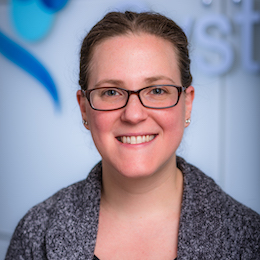Cores
Systems Pharmacology Core
The Proteomics Platform of the Laboratory of Systems Pharmacology (LSP) is part of an inter-institutional effort to improve the science underlying drug development, drug evaluation in clinical trials, and use of new medicines in patients. Our role is to provide collaborative research projects with custom tailored analysis pipelines of highly advanced mass spectrometry (MS) based proteomics. This begins with scientific advice on experimental design, continues with sample preparation of MS samples by our platform, and is followed by support with processing and analysis of collected data. The cornerstone of the platform is a state of the art Orbitrap Lumos Tribrid MS instrument which provides superior resolution and quantification accuracy. By combining isobaric labeling of up to 11 multiplexed experimental conditions with Tandem Mass Tag (TMT) reagents we achieve highly precise relative quantification of thousands of proteins in parallel. Fractionation by alkaline reversed-phase chromatography allows deep analysis of very complex peptide mixtures such as whole proteome digests. Our platform has extensive expertise quantifying phosphopeptides by isobaric tagging (phospho multiplex TMT), iron metal affinity chromatography (IMAC), and antibody-based enrichment of phosphorylated tyrosines (pY). In addition to these systems-wide approaches, our platform applies targeted proteomics using synthesized trigger-peptides or -phospho-peptides. The Proteomics Platform of LSP has successfully applied these technologies to cell culture, tissue, and clinical samples. Statistical analysis is provided to facilitate biological interpretation of large multiplex datasets.

Marian Kalocsay, PhD is Director of the LSP Proteomics Platform and has extensive experience in developing proximity labeling MS analysis pipelines and has been training and educating members of the CCSP on experimental design, procedures and data analysis.
The Multiplex Imaging Platform recently acquired 3 high content imagers (2 Molecular Devices IXM-C and 1 GE INCell 6000) that can continuously process plates from a 110-plate carousel. We provide the unique capability of allowing different multidimensional experiments to be simultaneously conducted in a multi-user environment. We are the first in the world to upgrade both IXM-C microscopes with Lumencor Spectra Gen 3 light sources to extend the number of markers that can be sequentially imaged from 5 to 8. This will also further enhance multiplexing capabilities in developing high-dimensional imaging techniques, such as CyCIF (Project 2). The Spectra Gen 3’s higher output power, through the use of lasers, will allow shorter exposure times and better signal-to-background for more accurate quantification of intensity and morphology in images. The platform has also acquired 2 Rarecyte Cytefinders for 4 to 6-channel rapid multiplex imaging of tissue on slides. These slide scanners were highly instrumental in setting up multidimensional imaging in tissue at LSP. In addition, we also provide image analytical support for processing, identifying, and segmenting tissue samples for downstream quantitative analysis.

Clarence Yapp, DPhil (Oxon), is the Platform Manager for Microscopy and Image Analysis at the LSP. He provides both new and experienced users with experimental design and hands-on training with LSP and HMS Nikon Imaging Center microscopes. Clarence is also a research associate at the HMS Image and Data Analysis Core under Dr. Jennifer Waters and Dr. Hunter Elliott where he uses his experience in cellular assays and computational expertise to design experimental workflows.
The metabolic profiling core uses a targeted LC/MS method, implemented in the Haigis lab, that measures the levels of ~300 metabolites of known identity based on a library of reference compounds. Metabolite detection is performed on a highly accurate QExactive HF-X mass spectrometer. This technique measures water soluble metabolites (central carbon metabolites, amino acids and their derivatives, bile acids, carbohydrates, organic acids, nucleotides, etc.), as well as isotopologues generated from tracing studies utilizing stable isotope labels. Future plans include expansion of our metabolic compound library to >600 compounds, as well as developing methods to detect hydrophobic compounds from biological samples, including several classes of free fatty acids and lipids.

Alison Ringel, PhD is an expert in mechanistic studies of metabolism. She received her PhD from John’s Hopkins University and is a postdoctoral fellow in the Haigis lab. Alison performs mass spectrometry-based metabolomics in the Haigis lab as well as numerous biochemical assays.
The computational platform focuses on end-to-end pipelines for RNAseq, proteomics, and CyCIF imaging, working closely with the Project leads to integrate analysis methods into the experimental design and execution. The RNAseq pipeline utilizes published methods to align sequence reads against a reference genome, compute differential expression signatures, and perform pathway enrichment analysis. All modules are implemented as ready-to- run scripts with extensive instructions. The pipeline has been successfully used by several trainee scientists with limited computational experience. Together with the Outreach Core, the computation core offers weekly drop-in sessions at the LSP for all CCSP investigators seeking guidance for their computational needs.

Artem Sokolov, PhD is the head of the Computational Core, the Systems Pharmacology Core Lead, and a member of the CCSP Executive Committee. He has an extensive background in machine learning and its application to molecular and clinical datasets. As part of the CCSP, he leads a team of scientists who are actively developing and maintaining computational pipelines for analyzing transcriptomics, proteomics and imaging data collected for Projects 1-3. Sokolov is also actively involved in the CSBC consortium and co-chairs the CSBC/PS-ON Image Analysis Working Group, which is focused on systematic development and evaluation of methods for cell segmentation in high-dimensional biomedical images.
The LSP/CCSP Sequencing Platform performs both conventional deep RNA-Seq and the low-cost high-throughput mRNA-Seq method 3’ Digital Gene Expression (DGE). Microfluidic based single cell RNA sequencing (scRNA-Seq) methods are also fully validated and ready for use by Center members. We have expertise and instrumentation for both the commercial 10x Genomics and custom inDrops platform through our partnership with the Single Cell Core at HMS. In another partnership with the nascent transcriptomics core developing out of the laboratory of Karen Adelman at HMS, we are forming a working group of scientists involved in sequencing method development to share insights and methods in order to keep our Platform up-to-date and give us access to more expert knowledge. The nascent transcriptomics core is aimed at providing high-throughput Pro-Seq and Start-Seq. These methods will be useful for all of our projects that involve changes in transcriptional or splicing machinery or looking at drugs that target these core cellular processes. The Sequencing Platform is gearing up for projects that assay epigenetic changes using the Assay for Transposase-Accessible Chromatin (ATAC-Seq).
Outreach and Training Core
The CCSP Outreach and Training Core participates in and contributes to a wide variety of activities that are guided by the following mission statements.

Here we list some of our efforts by mission statements, but please keep in mind that many of the activities are inspired by multiple synergistic goals.
- Computational forum (in-person and virtually on Slack #computational-forum) provides hands-on help for CCSP members every Thursday 11:30am-12:30pm
- OMERO video tutorials available on Synapse for CCSP members and collaborators
- Jekyll tutorial and template to help scientists build and maintain research websites
- HiTS Social Lunch series to discuss professional development topics
- Biweekly LSP group meeting – information available on LSP Slack channel and on the LSP website
- LSP annual retreat and seminar program – check out our events on the LSP website
- Regulatory science seminars, retreats and global conferences hosted by the Center for Regulatory Sciences
- Center-wide Slack channel (#nci-ccsp-center)/newsletter
- Quarterly super-group meetings
- Disease Atlas Meetings – weekly seminar on the development of atlases for cancer and other diseases
- MIT/Harvard Course Principles and Practice of Drug Development (7.547J, HST.920J, BCMP 230)
- Multiplex Tissue Imaging Technology webinar series hosted on the public-facing Harvard Tissue Atlas website
- Finding a Reliable Hit: Optimized tools for reproducible drug screening nano-course in collaboration with ICCB-Longwood. This nano-course is open to graduate students and postdocs at HMS and affiliated hospitals. (Finding a Reliable Hit will return in Fall 2023.)
Open Access Publications and Preprints
- Majority of CCSP papers are released on HiTS bioRxiv channel prior to publication
Open Source Code Repositories
- Laboratory of Systems Pharmacology (labsyspharm) GitHub – Open source software for data analysis
- Sorger Lab (sorgerlab) GitHub – New software tools for systems biology
- Laboratory of Systems Pharmacology (labsyspharm) DockerHub
- Sorger lab (sorgerlab) DockerHub
Online Tools, Methods and Datasets
- CyCIF.org Web Site – Data and visualization tools for exploring highly multiplexed tissue images
- INDRA Labs – Integrated Network and Dynamical Reasoning Assembler model assembly tool
- PySB – Rules-based modeling for complex reaction using Python
- Small Molecule Suite – Tools for optimizing small molecular libraries
- Key methods published on Protocols.io
- See Code & Data page for more software tools
LSP-Affiliated Research Cores
- ICCB-Longwood – Core facility for small molecule and RNAi screening; directed by LSP member Jennifer Smith.
- Nikon Imaging Center – Advanced microscopy facilities and training for basic and translational research. Contact LSP/CCSP Member Clarence Yapp for more information.
- Single Cell Sequencing Core – Single cell sequencing using the inDrops method